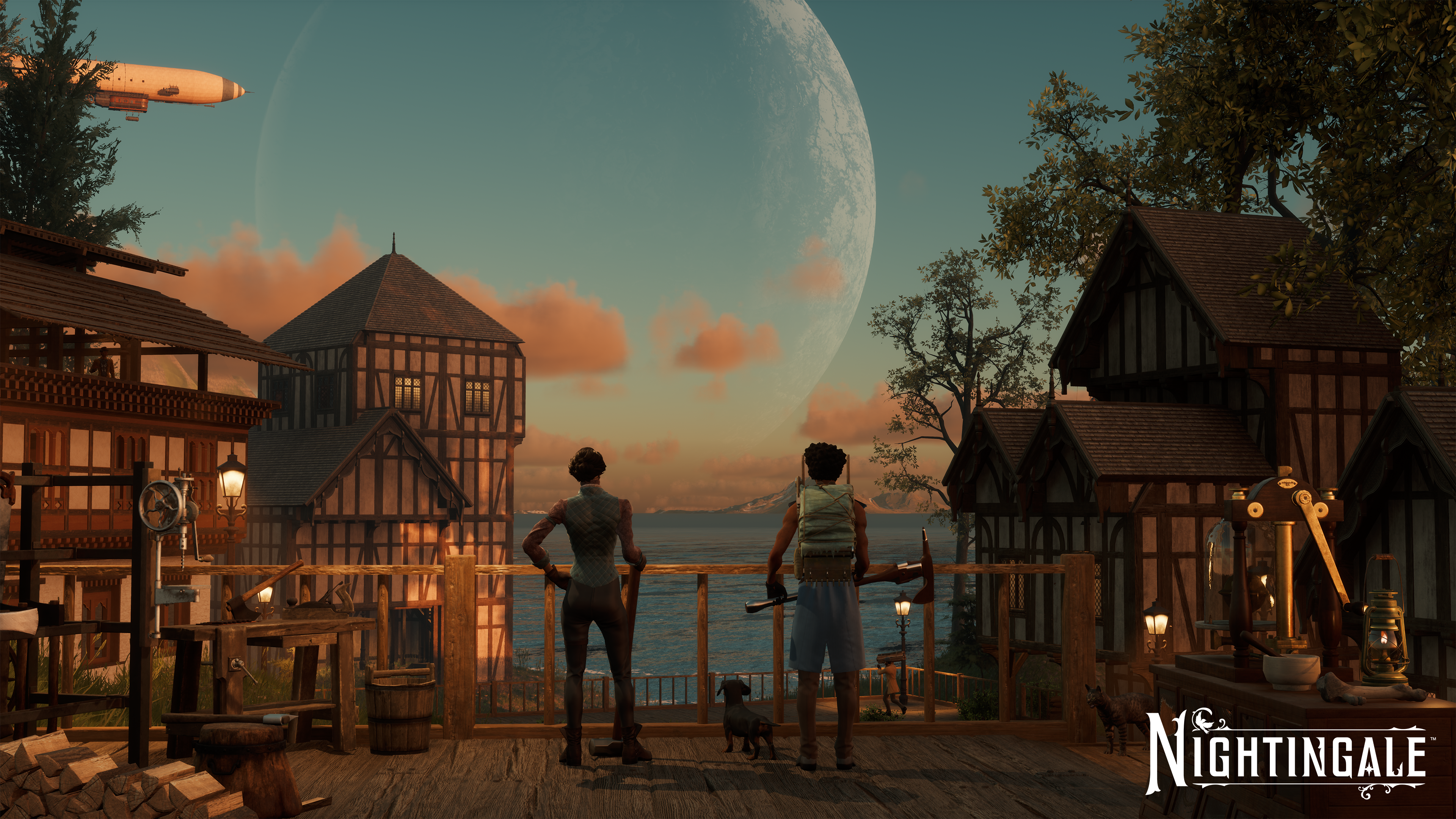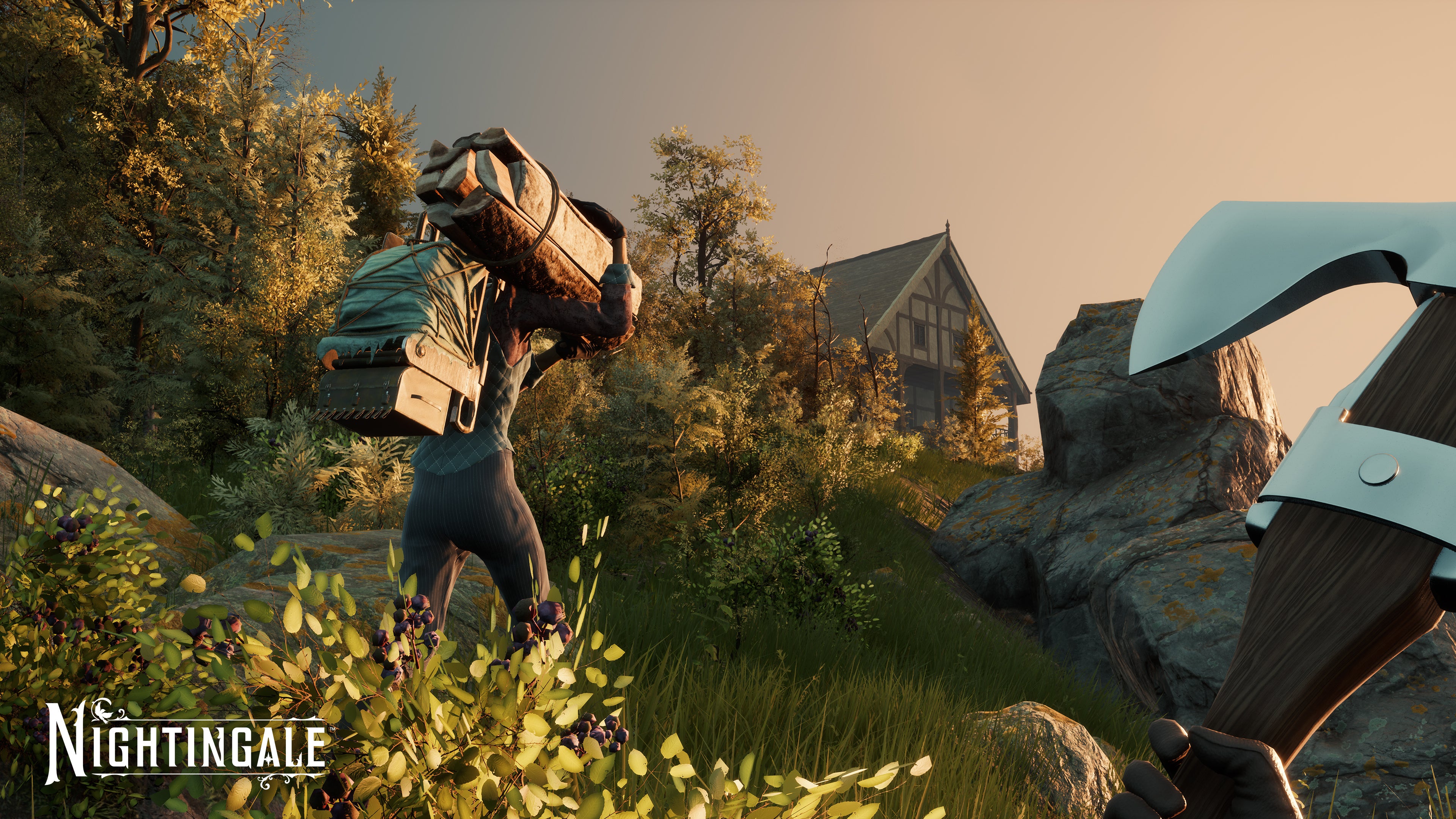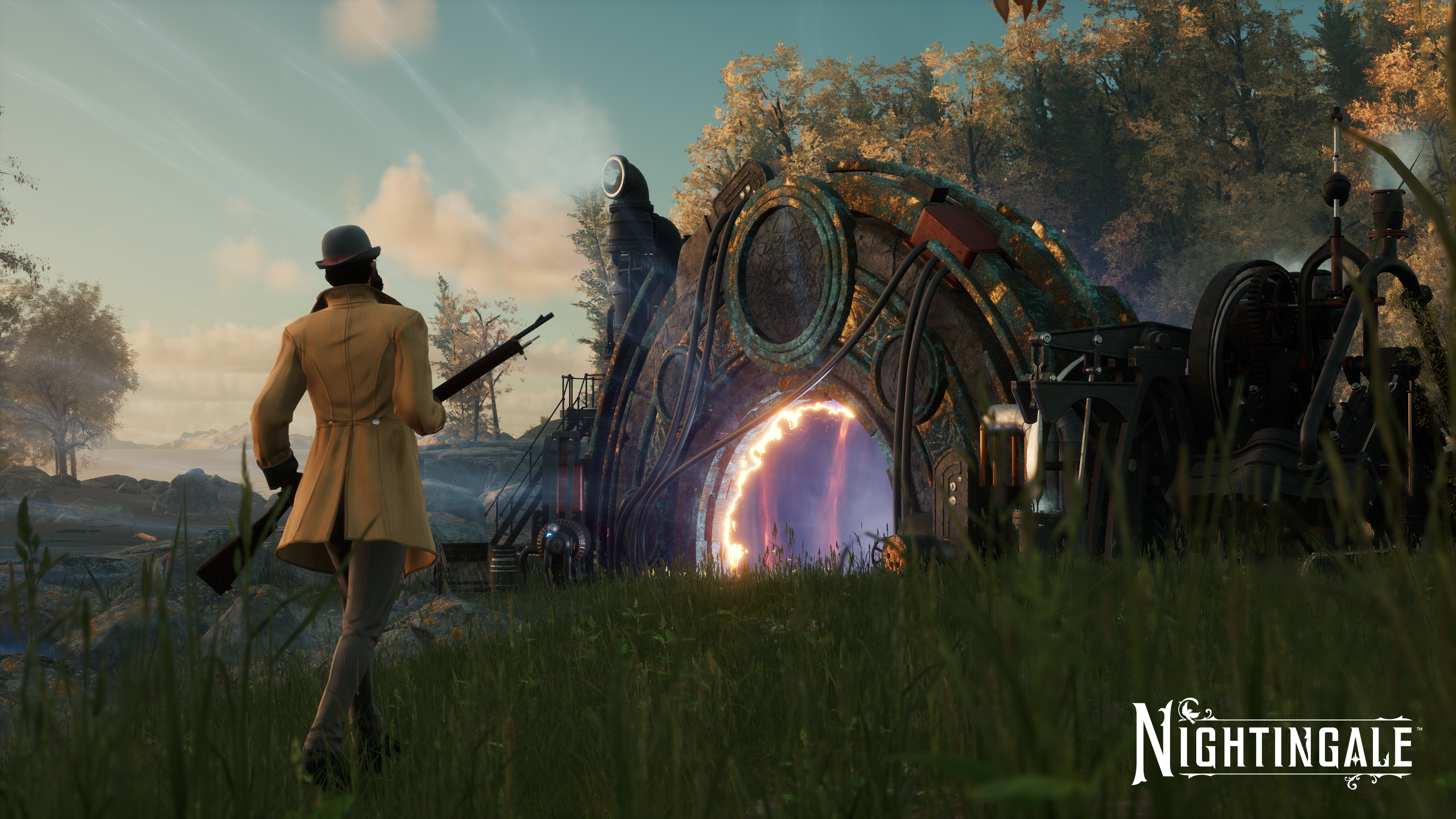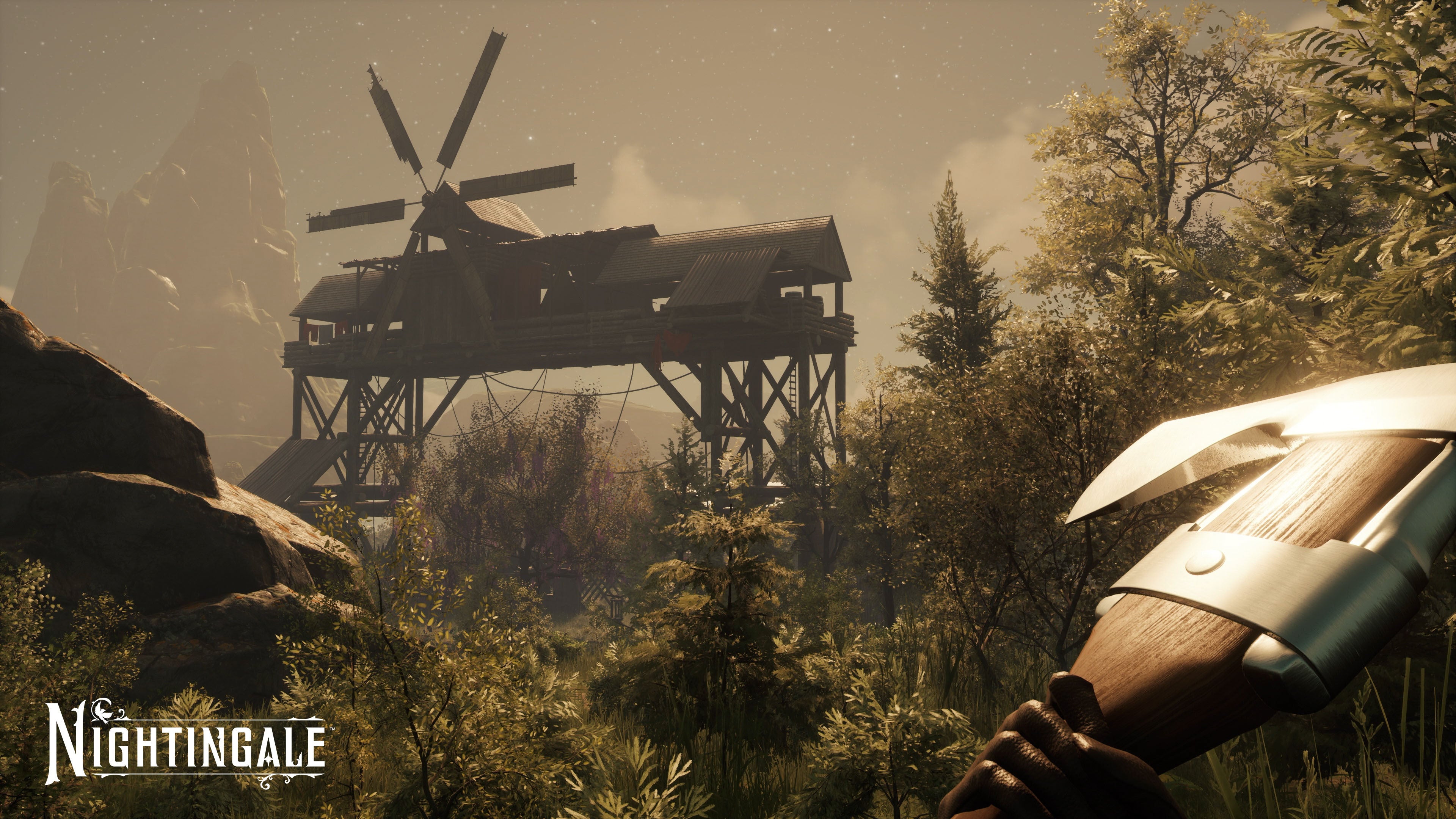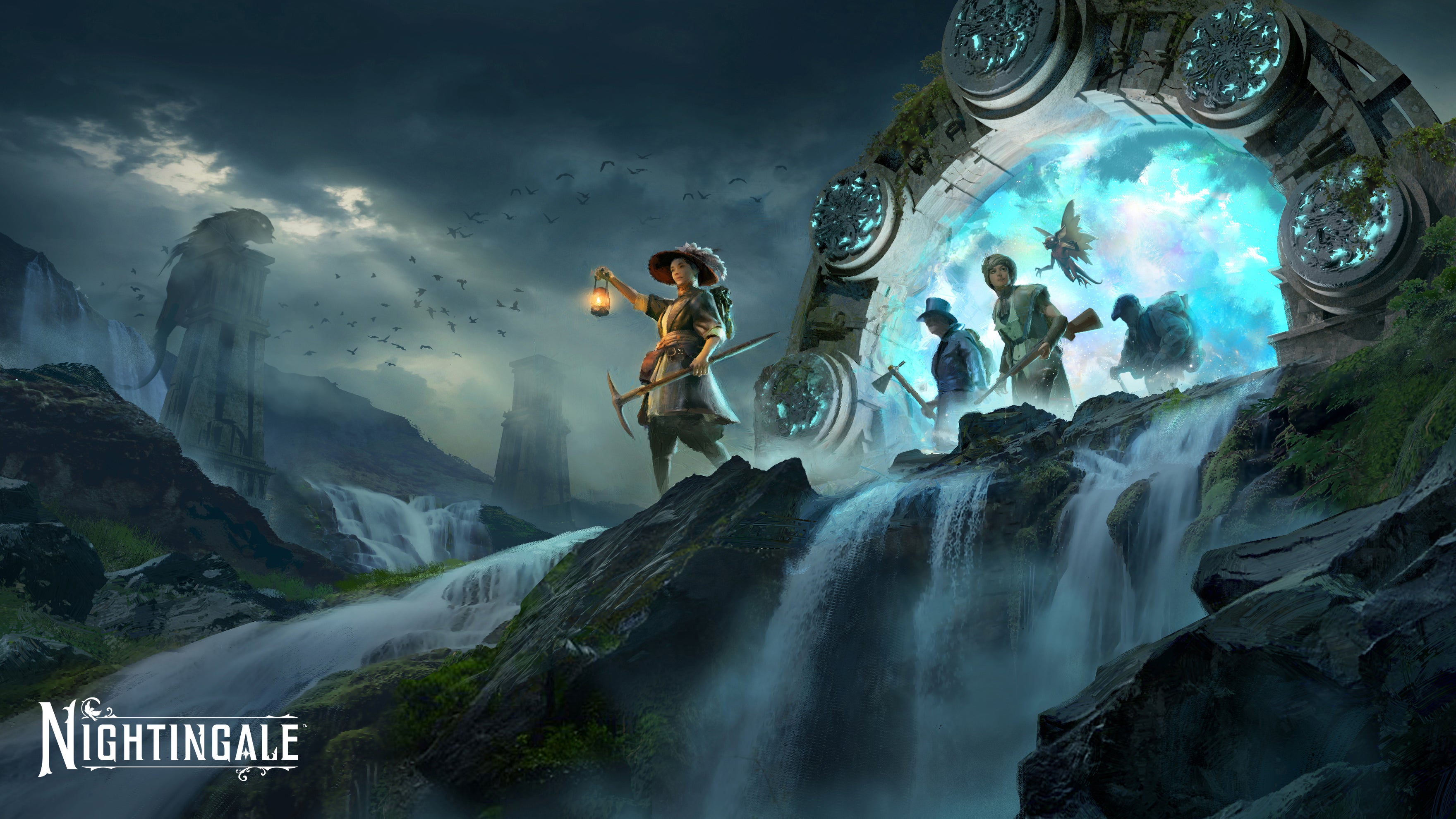But while that trailer gave us a good idea of Nightingale’s alternate history fantasy setting, it gave less away on what the game will actually be like to play - and what might have changed since it was originally teased as an online multiplayer RPG. I chatted with Flynn via Zoom last week, shortly before The Game Awards, to find out more. “We had imagined the kinds of things we would build in this game, and the kinds of things players would get to do in this game,” Flynn says when I ask about the change in genre label. “Over the past couple of years, we just found these new opportunities to take the game and new places we could go… ad they seem to resonate with the world we’re building and some of the fundamental choices we’d made early on, like, create a world that is highly interactive, and really empower players to do what they want. “What has remained the constant in all that has been the passion for world-building, this idea we want to create a universe for players that they can invest their time in, that’s going to have discovery around every corner, where players are going to feel rewarded for putting their time into it. We just evolved over time with new ideas and new thoughts and new gameplay iteration to say, ‘Yeah, this feels really good.’ " Nightingale is set just before the turn of the 19th century in an alternate Victorian world where magic has existed for hundreds of years. This magic allowed humanity to build a network of portals (basically, Victorian Stargates) to other fantasy realms. Humanity apparently gained access to magic from the Fae, mysterious mythical beings who recently turned up again after a long absence. It was also at this time that humanity’s portal network suddenly collapsed - leaving players, known as Realmwalkers, dispersed in far-off places struggling to survive. Apart from survival, humanity’s aim is now to get back to the city of Nightingale, the centre of magic. To do that, you’ll need to venture forth through remaining portals, battle eldritch horrors, gather loot, and build yourself back up again. “When you decide to go exploring in these realms, you get to make choices about how you want to tackle the adventures, how you want to participate in them,” Flynn says of the game’s adventure system. “In our trailer, there’s a really nice moment in there that’s meant to show the dichotomy the world will present - where a giant is bending down to receive an offering from players. That’s one way you can solve that encounter. A bit later in the trailer, there’s a bunch of Realmwalkers in combat with the giant - and the giant is rampaging through the community they built. That’s another way to try to solve it. Each challenge has different outcomes and each decision has different consequences.” Resources gained on adventures can be poured back into upgrading your character, or into building bases across various maps and terrains, with estates and farms. You can play solo or with others (though there’s no word yet on team or party sizes) and there’s no PVP. NPCs will be present, but it doesn’t sound like they will be fighting alongside you. Instead, you’ll talk with them for story and quests. The wider story of Nightingale is being kept under wraps, but Flynn said its setting had been inspired by the brilliant Jonathan Strange and Mr. Norrell by Susanna Clarke, a favourite book of art director Neil Thompson, Flynn’s long-term colleague at BioWare and now Inflexion too. (Eagle-eared fans of its TV adaptation might have noted that its star Marc Warren appears in the trailer.) “This alternate history idea is something we didn’t explore at BioWare,” Flynn continues. “You know, Mass Effect is ostensibly a future with an alternate history, but we didn’t really touch on that. “When we began the studio, we had been thinking for a long time about an alternate history game and just loved the Victorian era, which is great in that it offers something of the contemporary even at a point that’s 100-plus years old. There’s a lot of familiarity in the contemporary that exists in the Victorian - people dress approximately like they do [now] although it’s different enough that you go ’that’s interesting’. Weapons, guns and things like that are familiar enough to be recognisable, even if a little more primitive. And then you layer on this idea of magic and what you can do with a really cool magic system. It’s a really interesting setting with lots of opportunities for storytelling. “It didn’t take long as we talked about it, three and a half years ago, for some of our early developers to build it out and give us a sense of what that could be. And it became the world.” For now, Nightingale remains under wraps, though friends and family of Inflexion’s 100 employees were recently invited to play. There’s no word yet on when the game might release, though Flynn says more players will be invited to try Nightingale next year on PC, as the team seeks to gather more feedback, and work on more of its magic.
